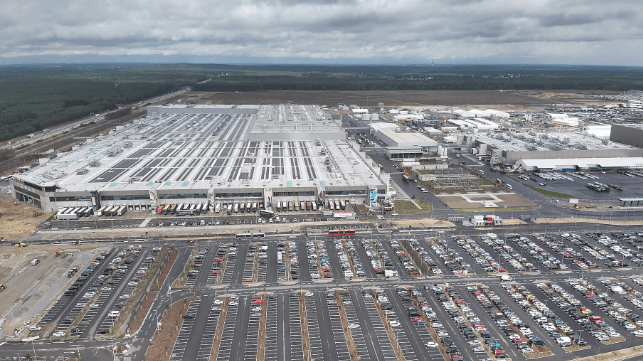Red Sea Disruption Forces Tesla to Suspend Production in Germany

Yemen's Houthi rebels have been disrupting commercial shipping in the Red Sea with drone and missile attacks since November, delaying transits and doubling rates for containerized freight on the core Asia-Europe route. On Thursday, as the U.S. and UK prepared airstrikes against Houthi positions, Tesla - the world's second-largest manufacturer of electric cars - announced that it would have to suspend production at its new German plant for two weeks because of the supply chain disruptions.
"Due to a lack of components, we are forced to suspend vehicle production at the Gigafactory Berlin-Brandenburg between January 29 and February 11, with the exception of a few sub-areas," the company said in a statement. "The armed conflicts in the Red Sea and the associated shifts in transport routes between Europe and Asia via the Cape of Good Hope are also having an impact on production [at the plant]."
The firm said that the "considerably longer transportation times" are delaying its supplies, creating a gap in the constant flow of materials from Asian suppliers to its German plant. (Tesla's manufacturing facilities in China and the United States are not affected.)
Tesla is not the only firm with supply chain issues caused by the Red Sea disruption. This week, the Federation of German Industries called for the German government to provide military protection for Red Sea shipping, warning of significant effects on the German economy if the attacks continue.

that matters most
Get the latest maritime news delivered to your inbox daily.
The allied U.S.-British strikes on Houthi positions on Thursday may change the equation in the Red Sea, but until ocean carriers regain confidence in the security of the route, elevated freight rates and longer transit times will continue. Shippers are adapting to a new "Cape route" paradigm by diversifying their supply chains and looking at alternative routes. Rail operators report an increased interest in Eurasian overland rail services, which are faster and more expensive than ocean freight. The services are a niche option for high-value cargo in limited quantities: In 2021, the China-Europe container-on-rail trade accounted for about 600,000 TEU of volume, a fraction of the 26 million TEU of China-Europe maritime trade that year, according to The Diplomat.
Top image: The Tesla Berlin-Brandenburg plant (Michael Wolf Penig / CC BY SA 3.0)
